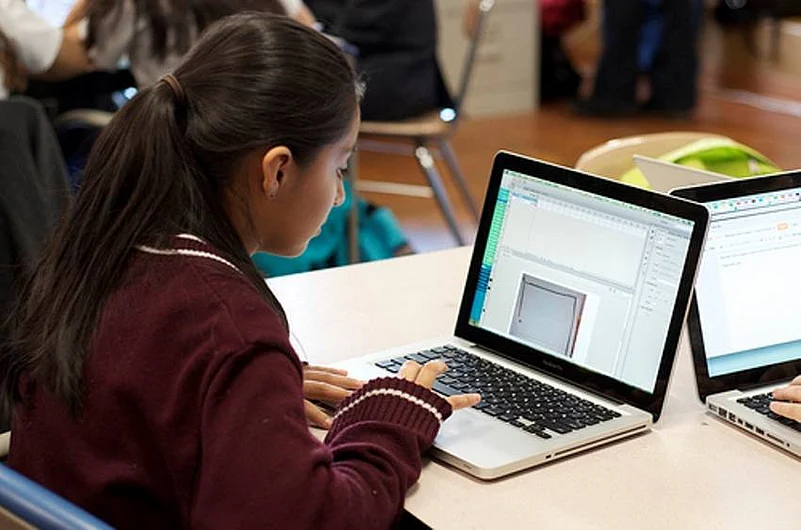The shift from physical to online lectures has never been an easy one for anybody. However, what often happens while talking about the current scenario of online classes is that we overlook that it is taking a toll on the teachers as well, and not just the students alone. What happens when you ask a public university lecturer to sit at home and take his hour-long lectures in front of a screen? Is the situation still better for those teaching at a private university than its public counterparts? Can the lack of privilege, unhealthy domestic environment and online bullying be ignored even if a teacher happens to get over the technological challenges associated with online teaching?
While talking about the challenging aspects of online teaching which happened to be completely absent during the physical classes, Sanjay Mutto, Assistant Professor at Kamala Nehru College, Delhi University, said, “The biggest issue for me while teaching online is the difficulty in getting feedback from students.”
“With the microphones switched off and the cameras shut, a teacher is often left with little idea as to how much students are comprehending of what is being taught. The teacher has no way of knowing what is the level of comprehension. The teacher is not even concerned with if all the students are paying attention, that was inevitable even during physical teaching. A teacher cannot force one to pay attention to what is being taught in the class. However, even amongst those who are concentrating in the class, a teacher cannot know how much of the knowledge being transferred is actually being understood.”
What played a significant role during physical teacher and at the same time, lacks in online lectures is the abundant availability of non-verbal cues. If students understand a concept, they will nod. They will be taking notes, sit with their backs straight up or will just make eye contact. However, minuscule these non-verbal cues might sound, they are extremely important for a lecturer to address a group of students and it becomes even important when the same is absent while teaching online. Sure, a student might be grasping everything the teacher is saying but how is the teacher supposed to know that with the eyes and the mouths of students’ devices shut?
“Another very generic criticism against the online classes, which I feel is extremely important is the element of class attached to it. Teachers can only teach comfortably if they have a separate room where they can shut themselves off from the rest of the house and be completely on their own. The domestic situation at a lot of teachers’ houses might not be ideal to address a group of students on a daily basis. In that case, I feel I am extremely privileged because I can cut myself away and then students in peace. But not everybody is that fortunate, I know people who have young kids and elderly parents in the house and they struggle a lot with creating an ideal environment at home to work,” shared Professor Mutto.
As similar as the issue of difficult domestic environments might sound for students as well, the problem is much bigger a challenge for the teachers. A student can choose to leave the class at any point in case they have to or not even do that as their domestic disturbances cannot penetrate their switched off microphones. However, a lecturer has to switch on their microphone, talk through the timings of the lecture and pay attention to their job alone throughout the hours of the lecture. The teachers do not have the option to leave the online lecture, attend to the events of their households and login into the meeting again. “Another issue which is often talked about with respect to the students but never in terms of the teachers is the lack of required resources. Not every teacher has a laptop, not every teacher can afford a smartphone. Even if a teacher does have enough devices, those resources are also shared with their children at home because, in the end, they too are students who need to attend online classes.” added Sanjay Mutto.
On top of the absence of adequate resources and devices, teachers also have to pay for the internet and mobile data services from their own pockets. What comes as an advantage of the online lecture is that teachers can very easily show videos and documentaries in real-time which was nothing short of a hurdle in a public university’s classes in physical form. However, the same advantage comes at a cost because streaming videos on an online platform require high-speed internet which is unaffordable for a lot of lecturers. Even if for once, a teacher can afford to buy a high-speed data plan, what guarantees that they will actually be able to access it given the prevalence digital divide in our country? Even if a teacher living in a remote village of Kerala does buy a 4G data plan to teach online, will he also cross the geographical hurdles determining access to the internet in India?
As if the teachers did not have enough on their plates already with teaching through the screens that the issue of online harassment and bullying against them also emerged. At some point, the problem became so distressing that a professor working in a university in Bengaluru committed suicide after his students asked him to deliver pizzas to their houses. The professor was working as a pizza delivery executive in the night to earn some extra cash in the pandemic.
It has almost been an entire year since we have been living with the pandemic and yet the questions and concerns that are attached to it go unheard. Months into the pandemic and still, we refuse to lay our eyes over the concerns of the sole community of people responsible for ensuring education does not get compromised even in such unprecedented times.
























